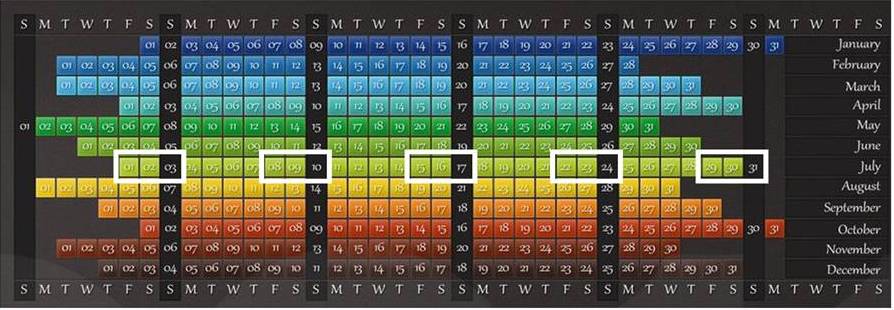|
Copyright ©2011by Paul Niquette. All rights reserved. |
||||||||||||||||||||||||||||||||||||||||||||||||||
 essages have
been circulating throughout the worldwide web for years
concerning a particular calendar event, proclaiming
breathlessly that in 2011, July has five Fridays, five
Saturdays. and five Sundays. "This happens once !" exclaimed one version that
reach a certain puzzle-master from an astounded
correspondent. essages have
been circulating throughout the worldwide web for years
concerning a particular calendar event, proclaiming
breathlessly that in 2011, July has five Fridays, five
Saturdays. and five Sundays. "This happens once !" exclaimed one version that
reach a certain puzzle-master from an astounded
correspondent.
July, 2011
"Forward this message to your friends," says the message, "and money will arrive within four days, based on Chinese Feng Shui."
Most of us take our weekends for granted, although their history dates back less than a century. Both Saturday and Sunday have become welcome respites from the workweek. Moreover, Friday is payday for many workers. The acronym TGIF has taken its place in the English Language as possibly the most sincere of many "Thank God" expressions. Indeed, a restaurant franchise has trademarked T.G.I. Friday's no doubt as a positioning stratagem, appropriating a happy sentiment for the other six days. How pleasant to have payday followed immediately by two days off! Let us define a Magnanimous Month as one in which those three consecutive days Fri-Sat-Sun occur five times.
|


